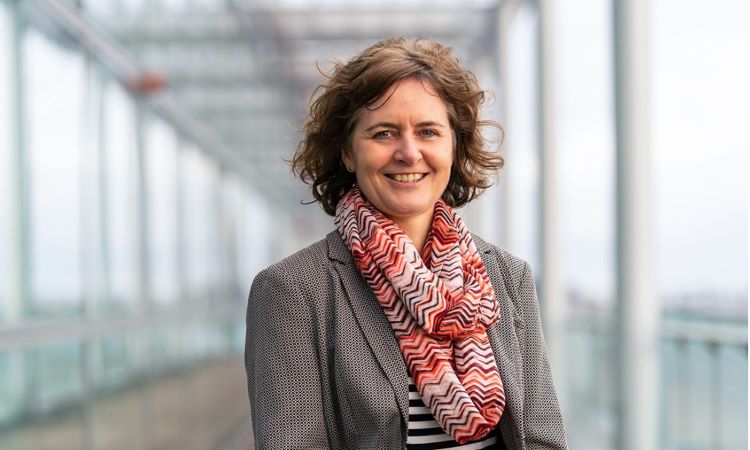Co-production: benefits for people and services
By Elke Loeffler - Posted on 3 June 2021
Elke Loeffler and Beth Weaver hosted a co-production discussion at a recent Engage with Strathclyde event. Here, they share their views on how involving the public can improve public services.
The concept of user and community co-production is not new in Scotland. A decade ago, the Christie Commission urged that: “Reforms must aim to empower individuals and communities receiving public services by involving them in the design and delivery of the services they use”.
Since then, user and community co-production and related concepts have been embedded in Scottish policy documents such as the Scottish Approach to Service Design in 2019, which states: “The vision for the Scottish Approach to Service Design is that the people of Scotland are supported and empowered to actively participate in the definition, design and delivery of their public services (from policy making to live service improvement)”.
However, some questions remain. How and to what extent have these policies been translated into practice? What has been the impact of co-production initiatives on public services? What are the challenges to, and limitations of, embedding co-production in public services (whether provided by public, third or private sector organisations)?
The Engage Strathclyde event on “User and Community Co-production” in May 2021 provided participants from public, third and private sectors with a wide range of good practice cases from different sectors, including adult social care, services for young people, justice and employability services. In particular, the presentations showed the potential of co-production with often marginalised groups in order to improve public quality of life outcomes and engender a shift in governance arrangements, embracing the principles and practices of social inclusion and citizen-focused change.
Professor Beth Weaver from the School of Social Work and Social Policy and Alex O’Donnell from East Dunbartonshire Council demonstrated how working co-productively with professionals and service users in justice services can make a difference, informed by previous work commissioned by Community Justice Ayrshire. Beth Weaver and colleagues at the Children and Young People’s Centre for Justice were enlisted to establish three service user involvement groups across the Ayrshire council areas, and to support and document the process of implementation and the resulting activities, outputs and outcomes This culminated in the production of a step by step practice guide: Inclusive Justice: Co-Producing Change, which essentially offers a new way of working in justice services, one that not only supports change on the ground, but can inform an organisational strategic approach, and a Scotland-wide approach too.
User and community co-production has also been at the heart of Secure Care Pathways and Standards in Scotland. As Beth-Anne Logan, STARR and Ross Gibson, Children and Young People’s Centre for Justice at the University of Strathclyde pointed out, these standards set out what should be expected by children and young people, their families and professionals involved in providing secure care or support before and after any potential stay in secure care. The standards are rights-based, individualised and outcome focused. The actual document includes images developed by young people and their quotes as to why the standards matter to young people, as well as audio recordings to make the message more accessible.
In South Ayrshire, local public services have been working with young people with lived care experience. The Champions Board enables a group of young people with care experience who are supported to come together to connect directly with those who make key decisions that affect their lives. Dawn Parker, Corporate Parenting Lead Officer, and Taylor Howie, Faith Young, and Chloe McFadyen, the South Ayrshire Champions Board, provided compelling testimonials of how the co-production work has enabled young people to make use of their lived experience to influence improvements in services, policies and practices, and to challenge the stigma associated with care. The Board also invite staff and community to local events, such as showcasing of new films produced by young people with experience of the care system.
Co-production with users and communities often involves partnership working with third sector organisations at the local level. Professor Colin Lindsay of Strathclyde Business School reported positive findings from in-depth interviews with lone parents and key stakeholders involved in more person-centred co-produced local employability services within the context of the Making It Work (MIW) programme which was delivered through partnerships in each of Scotland’s five largest local government areas. MIW services were planned collaboratively following pre-launch consultation with local stakeholders and lone parents’ groups. Services typically involved a mix of employability and personal development support, vocational training, debt/money advice, mental health and wellbeing provision, and funding for and signposting to childcare. Each participant was supported by a keyworker. Extensive local community outreach work was undertaken to engage lone parents and, once engaged, there was a strong emphasis on facilitating peer support networks.
Dr Elke Loeffler reported similar positive effects from experimentation with co-production approaches in the Employment Agency in Offenbach, Germany. This involved the introduction of key co-production approaches based on the Four Co’s Model (co-commissioning, co-design, co-delivery, and co-assessment) to improve the employability and wellbeing of different groups of job seekers. Furthermore, this German good practice case study shows that co-production can also be implemented in more hierarchical and regulated contexts. The Danish case study of Aalborg Aktiv - a voluntary work programme for people with disabilities - and Nanna Mortensen’s research at the University of Aalborg also provide interesting lessons for the UK.
The Engage event had an excellent response with more than 100 registrations, which indicates that the co-production agenda retains high currency in Scotland. However, as the Feeley Report on Adult Social Care highlights “innovation seems usually to be the result of a combination of enthusiastic local leadership, availability of additional funding and willingness locally to change” (Chapter 8). In addition, the discussions in the breakout rooms showed the need to disseminate good practice, to share learning and to scale out co-production approaches which work well.
This is where interdisciplinary teams at Strathclyde University can help to make a difference by engaging with co-producers and other organisations and networks promoting co-production in and beyond Scotland. We’ll be running ‘Co-Production Chats’ with small groups of people interested in co-production to continue the conversation and help you to generate new ideas and better solutions.
If you are interested, please contact elke.loeffler@strath.ac.uk or beth.weaver@strath.ac.uk










